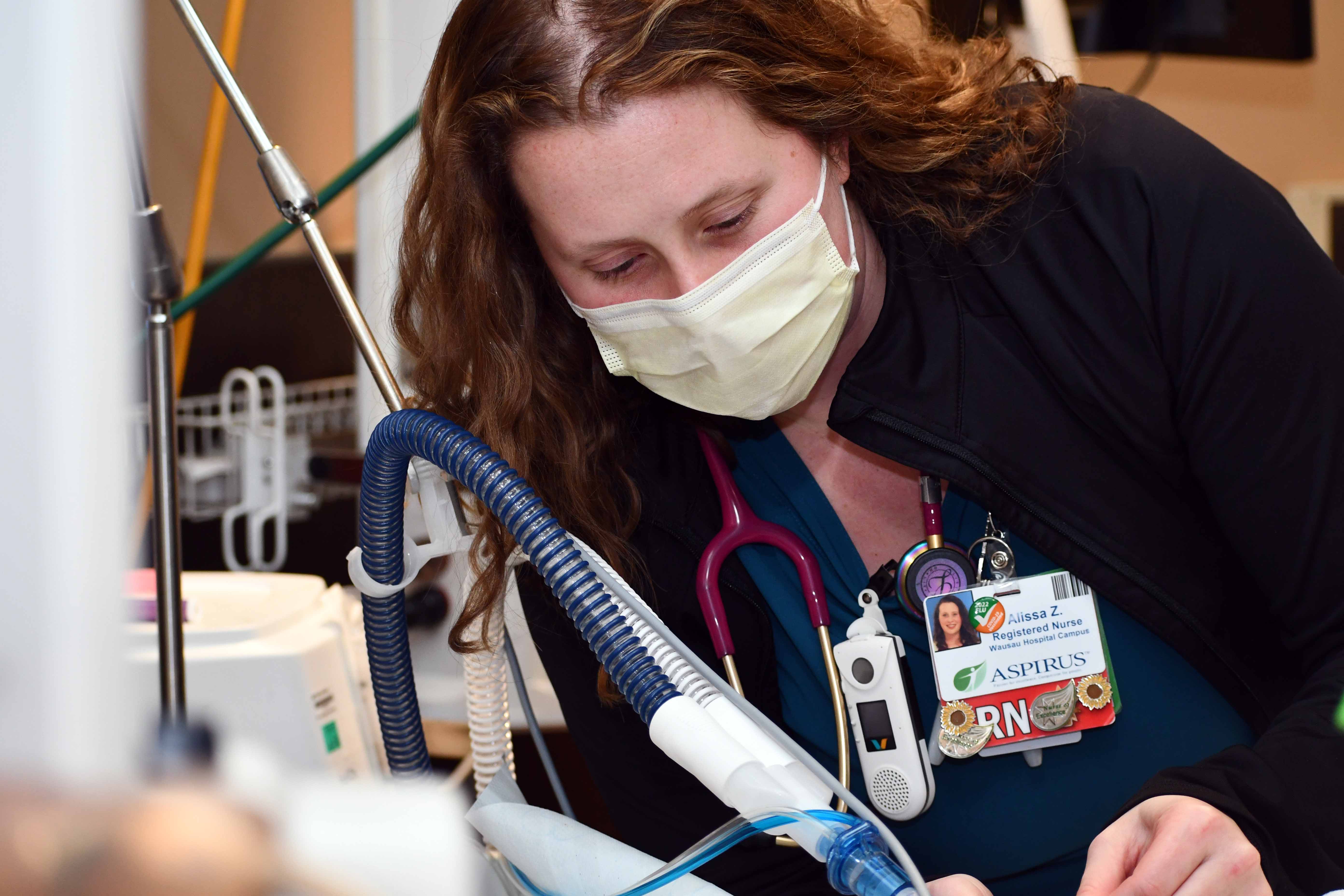How to Identify a Brain Injury
3/31/2023

Alissa Zaucha, Aspirus Medical Surgical Intensive Care Unit Nurse
Each year an
estimated 1.5 million Americans sustain a traumatic brain injury
(TBI), resulting in 230,000 hospitalizations and 50,000 deaths, according to
the Centers for Disease Control and Prevention (CDC). The brain is one of the
most important organs in the body and if injured can lead to potentially
harmful short or even long-term effects.
March is National
Brain Injury Awareness Month, an opportunity to educate people about the
symptoms and effects on those who suffer from TBIs.
A TBI is a sudden
injury that causes damage to the brain and may happen when there is a blow,
bump, jolt, or penetration to the head. Brain injuries can range from mild or
minor, such as a concussion, to moderate or severe and resulting in a loss of
consciousness.
According to the
CDC, individuals with a mild TBI or concussion may exhibit physical, mental
and/or emotional symptoms.
- Physical symptoms
may include dizziness or balance problems, headaches, nausea or vomiting,
vision problems, or changes in sleep.
- Mental symptoms may
include attention or concentration problems, feeling slowed down, foggy or
groggy, memory loss, or trouble thinking clearly.
- Social or emotional
symptoms may include anxiety or nervousness, irritability, sadness, or
feeling more emotional in general.
Minor brain injuries
that result in a concussion can usually be monitored at home after a medical
checkup. Take time to relax at home and allow the brain to recover. Avoid or
cut down on screen time, refrain from driving, avoid all contact sports and activities
and most importantly, get plenty of sleep.
People with moderate
to severe brain injuries may need ongoing specialized medical care such as
rehabilitation.
“Patients may need
to re-learn how to do basic tasks in order to get back to some semblance of
their normal life,” says Aspirus Medical Surgical Intensive Care Unit Nurse
Alissa Zaucha.
Ongoing treatment
may also include behavioral health support, lifestyle changes to promote brain
health and education around preventing or managing physical problems that may
come up during recovery.
Zaucha says “brain
injuries of any kind should be taken as serious as any other physical injury
and medical advice should be carefully followed to ensure complete recovery.”
A sports tackle, car
crash, or unfortunate fall can all lead to a TBI and can happen to anyone at
any age. To help prevent them, the CDC reminds people to:
- Buckle
up every time you drive or ride in a motor vehicle
- Never
drive while under the influence of alcohol or drugs
- Wear
a helmet, or appropriate headgear, when you or your children ride a bike, play
a contact sport, use in-line skates or ride a skateboard, bat and run bases in
baseball or softball, ride a horse, or play winter sports such as skiing or
snowboarding
- Take
steps to prevent older adult falls
- Make
living and play areas safer for children by installing window guards and safety
gates near stairs
It’s important to
closely monitor individuals with a potential TBI and to see your provider or
call 911 if symptoms worsen.
For more information
about TBIs, visit cdc.gov/traumaticbraininjury
Back to all Posts